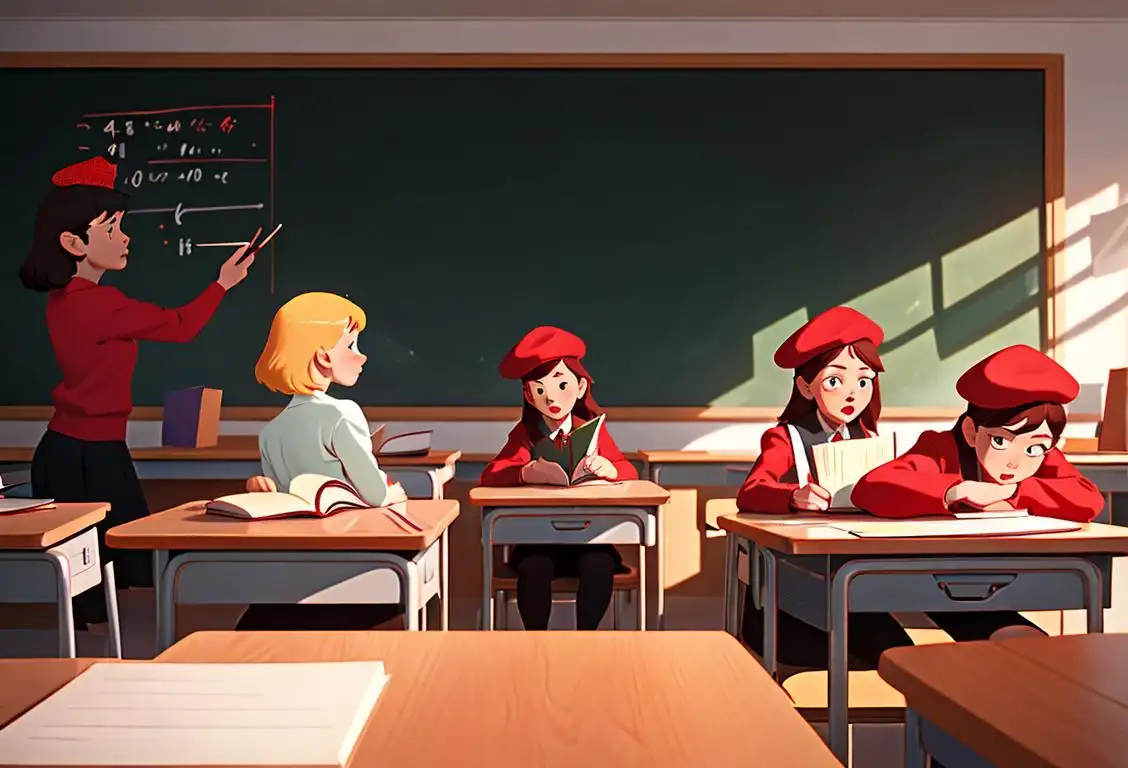National Latinx Aids Awareness Day

Hola amigos! Today, we put on our party hats while twirling information ribbons for the national Latinx AIDS Awareness Day. This day is all about community, info-sharing, and A LOT of fajitas in the name of raising awareness!
When is Latinx Aids Awareness Day?
It's national latinx aids awareness day on the 15th October.
A Little History
Though it's not the bite of an enchilada, National Latinx Aids Awareness Day has been making waves since its conception in 2003. This nifty day, noted to have peak activity on the 15th of October, 2019 with a whopping 2149 online mentions, is a momentous occasion dedicated entirely to raising awareness about AIDS within the Latinx community.
Why all the Talk?
The Latinx community experiences a disproportionate amount of the HIV/AIDs epidemic in the United States. Hence, to address that elephant-shaped piñata in the room, this day was put together. It's the day we share, spread love, and educate each other about this significant issue!
A Day of Unity
Though the emphasis is on a sober topic, the day is invariably a colorful, vibrant sombrero-filled fiesta (albeit one that asks you to update your knowledge on AIDS). Many engage in fundraising activities, support groups, roundtable discussions, and even salsa dance-offs!
Informed and Involved
So, how can you partake in this grand event? Make sure you're informed, first and foremost. Attend seminars and webinars, donate to the cause, educate others, or even lend a hand to local charities supporting the cause.
Concluding The Fiesta
In essence, National Latinx Aids Awareness day is a powerful testament to the resolve of the Latinx community to tackle the issue of AIDS head-on. Through open dialogues, awareness, and community action, we can change the narrative - always with a dash of salsa.
History behind the term 'Latinx Aids Awareness'
1981
Emergence of the AIDS Epidemic
In 1981, the medical community began noticing a peculiar outbreak of rare diseases among gay men in major cities across the United States. These diseases included an unusual form of pneumonia and a rare cancer called Kaposi's sarcoma. Doctors were puzzled by the sudden rise in these illnesses and the seemingly weakened immune systems of the affected individuals.
1982
Naming the Disease
In 1982, the Centers for Disease Control and Prevention (CDC) officially named the mysterious illness as Acquired Immunodeficiency Syndrome (AIDS). The term 'AIDS' was initially used to refer to the condition observed in a specific patient population predominantly consisting of gay men.
1983
Discovery of the Human Immunodeficiency Virus
In 1983, French scientists Dr. Luc Montagnier and his team isolated a virus that they believed to be the cause of AIDS. They named this virus the Human Immunodeficiency Virus (HIV). This discovery marked a major milestone in understanding the underlying cause of the disease and paved the way for further research and development of treatments.
1985
Recognizing the Impact on Latinx Community
By 1985, the AIDS epidemic had affected various communities, including the Latinx population. However, the initial response and awareness campaigns largely focused on the experiences of white gay men. Activists within the Latinx community started advocating for increased visibility and specific prevention efforts tailored to their cultural context.
1996
The Term 'Latinx' Emerges
In 1996, the term 'Latinx' began to gain popularity as a gender-neutral alternative to the terms 'Latino' and 'Latina' used to describe individuals of Latin American descent. 'Latinx' became a term encompassing the gender diversity within the Latinx community, highlighting the need for inclusivity and representation.
2002
Latino Commission on AIDS
In 2002, the National Minority AIDS Council founded the Latino Commission on AIDS to address the specific needs and challenges faced by the Latinx community in relation to HIV and AIDS. The commission has since been instrumental in raising awareness, promoting prevention efforts, and supporting those affected by the virus.
2010
Increasing Latinx AIDS Awareness
In recent years, there has been a growing recognition of the importance of raising awareness about HIV/AIDS within the Latinx community. Efforts have been made to combat stigma, provide culturally relevant education, and ensure accessible healthcare services. Various organizations and campaigns, such as 'Latina/Latino AIDS Awareness Day,' have emerged to prioritize the unique experiences and challenges faced by Latinx individuals in relation to HIV/AIDS.
Did you know?
The day got a special boost of Latinx love in 2019, earning 2149 online mentions in a single day!Tagged
awareness community celebration education Latinx AIDSFirst identified
5th October 2016Most mentioned on
15th October 2019Total mentions
2149Other days
Latinx Aids Awareness Day
Tell A Story Day
Thank A Police Officer Day
Red For Ed Day
Lutheran Schools Week With A Series Of Special Dress Day
Beverage Day
Law Day
Cheese Pizza Day
Child And Youth Mental Health Day
Foundation Doctors Presentation Day








